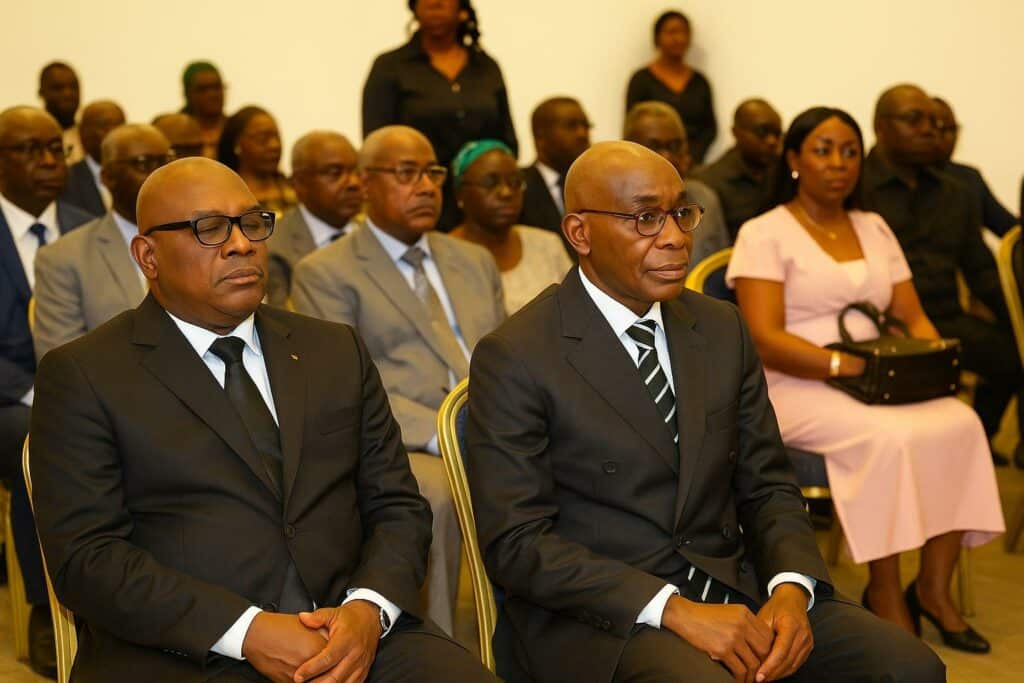A strategic turning point for technical education
In a political climate that values administrative modernisation, the Republic of Congo has embarked on a major overhaul of its public technical and vocational schools. From 20 to 22 October 2025, almost one hundred officials, educators and local leaders gathered in Brazzaville for a national workshop devoted to the installation of School Management Committees, better known by their French acronym COGES. Opened by Minister of Technical and Vocational Education Ghislain Thierry Maguessa Ebomé and financed by the World Bank through the Accelerating Institutional Governance and Reforms for Sustainable Service Delivery Programme (PAGIR), the meeting signalled a collective determination to root transparency and accountability in the day-to-day running of classrooms.
From decree to practice: the legal architecture
The forthcoming committees are not an improvised device. Their creation stems from the presidential decree of 4 June 2025 setting out the attributions, organisation and operating rules of governance bodies within public establishments of technical and vocational education (Official Gazette, 2025). The text assigns each COGES the dual mission of supervising budgets and accompanying pedagogical strategies, while ensuring that every franc allocated by the Treasury reaches its intended destination. The ministries of the Interior and Decentralisation, of Technical Education and of Finance have been mandated to coordinate deployment so that each school, however remote, benefits from uniform legal safeguards.
Participatory governance at the core
Unlike traditional top-down boards, the COGES model places teachers, learners, parents and municipal authorities at the same decision-making table. For Minister Maguessa Ebomé, such inclusiveness is essential. “I trust that, after this workshop, our schools will be better managed and resources more judiciously channelled,” he told participants in the plenary hall. Estelle Nzambi Nzoussi, Director of Studies and Planning at the Ministry of General Education, concurred, stressing that the committees embody PAGIR’s objective of bringing citizens closer to public services (Ministry communiqué, 2025).
Financial discipline under World Bank scrutiny
The World Bank’s involvement, through a US-funded performance-based loan, introduces stringent monitoring indicators borrowed from international best practice. By linking disbursements to measurable progress—publication of school accounts, periodic audits and community feedback—the Bretton Woods institution hopes to make COGES a showcase for results-oriented management in Central Africa (World Bank project note, 2025). Congo’s authorities welcome the external benchmark as a catalyst rather than a straitjacket, arguing that it will reinforce domestic efforts to curb leakages and optimise investment in laboratories, workshops and teacher training.
Echoes from the field
Although official deployment will begin in the first quarter of 2026, pilot consultations hint at tangible expectations. In Pointe-Noire, artisan-trainer Pauline Koullé anticipates “a direct voice in the purchase of equipment our apprentices really need.” Student representative Jacob Banzani, meanwhile, hopes the committees will “end the mystery surrounding tuition charges.” Local mayors view COGES as an entry point to harmonise municipal development plans with school curricula, thereby anchoring vocational training in regional labour-market realities.
Legal and economic lens
Under Congolese administrative law, transferring a share of managerial authority to mixed committees qualifies as a form of deconcentration rather than full decentralisation, meaning the State retains ultimate liability for service continuity. Economists note that better governance could translate into efficiency gains of up to 15 per cent in recurrent expenditure, freeing resources for investment without increasing the budget envelope (PAGIR baseline data, 2025).
Milestones on the road ahead
The Brazzaville workshop concluded with an agreed timetable: validation of internal regulations in December, election of parent and student representatives by February 2026, and first annual action plans before July 2026. A national steering committee will consolidate feedback and propose regulatory adjustments where field experience reveals bottlenecks. By blending legal rigour, community ownership and multilateral support, Congo-Brazzaville positions itself to turn its technical schools into hubs of skills and accountability—a prospect that resonates with the country’s ambition to diversify its economy and empower its youth.

